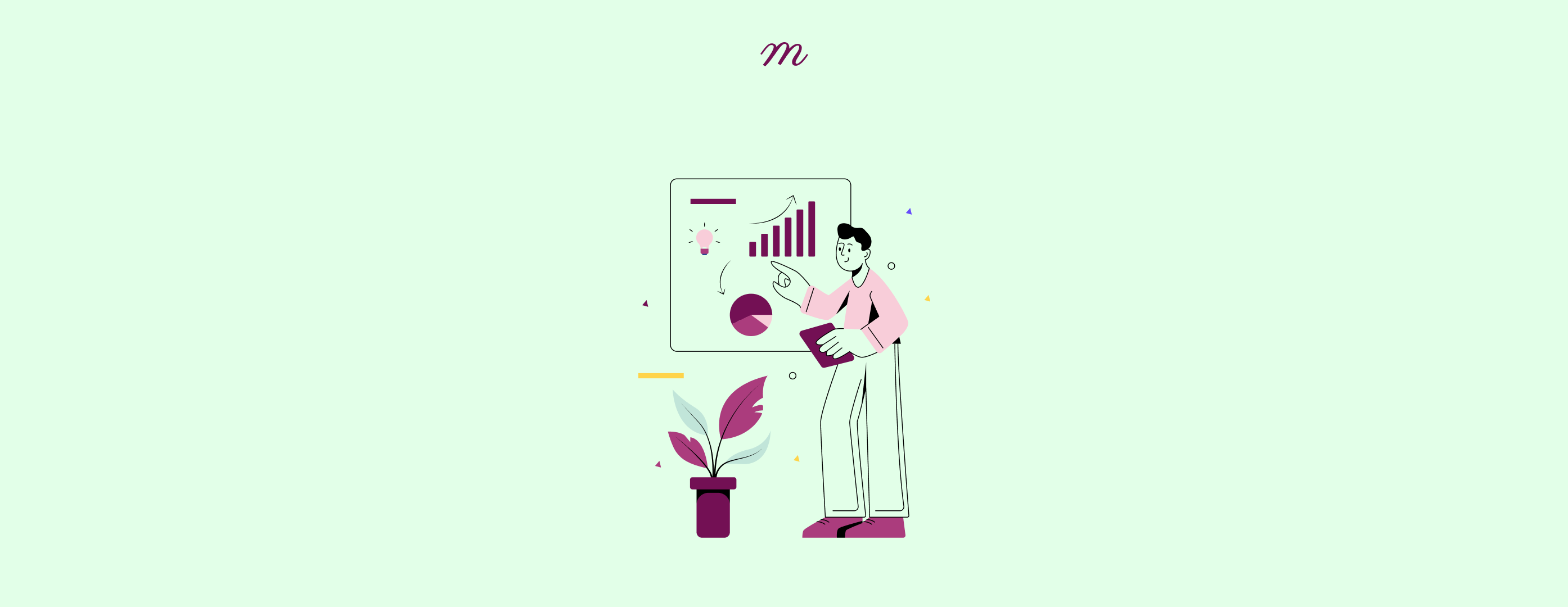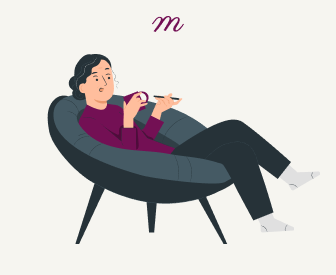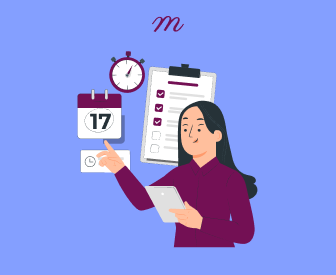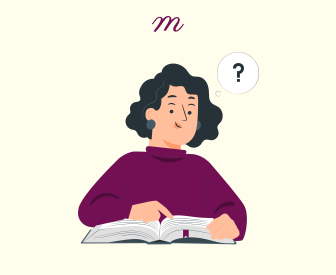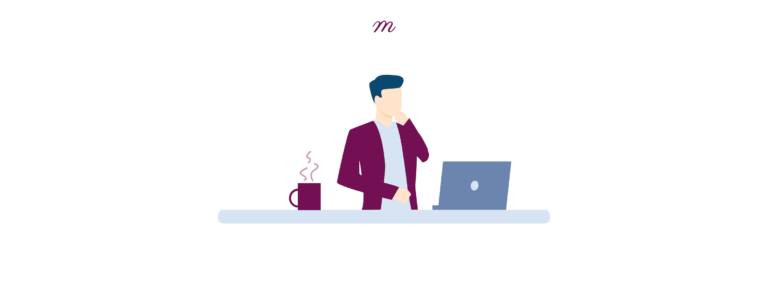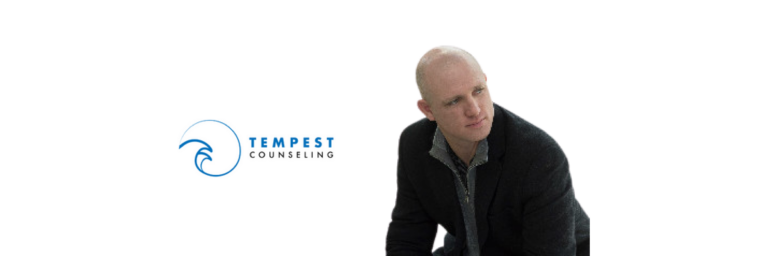Have your progress notes written for you automatically
Providing high-quality treatment for your clients is a primary priority as a mental health practitioner. To do this, remaining organized and efficient is essential. With an increasing patient load and the obligations of maintaining a successful practice, it’s easy to become overwhelmed and struggle to keep up with your job. Fortunately, a variety of tools, applications, and EHRs are now available to help you simplify your practice and improve your productivity.
In this post, we’ll look at some of the tools accessible to mental health professionals, such as telehealth video solutions, practice management software, and note-taking software. Whether you operate as a single practitioner or as part of a bigger team, these tools can help you work more efficiently, giving you more time to focus on your clients and provide the best treatment possible. You’ll be better ready to make educated selections about which tools and apps are most suited to your requirements and practice if you have a greater awareness of the possibilities available.
Telehealth Video Tools
Definition of Telehealth Video Tools
Telehealth video tools are software programs that allow mental health practitioners to conduct therapy sessions remotely with their clients. These tools use video conferencing technology to connect practitioners with clients online, providing a convenient and accessible way to deliver therapy services.
Examples of Telehealth Video Tools
- Zoom
- Doxy.me
- Google Meet
These are just a few popular telehealth video tools available to mental health practitioners. Each tool has its own unique features and benefits, and choosing the right one for your practice will depend on your specific needs and preferences.
Benefits of Telehealth Video Tools for Mental Health Practitioners
Telehealth video tools offer several benefits for mental health practitioners, including:
- Convenience: Telehealth video tools allow practitioners to connect with clients from anywhere, eliminating the need for clients to travel to the practitioner’s office for appointments. This can be especially helpful in the current pandemic or for clients who live in remote areas.
- Accessibility: By offering therapy sessions online, telehealth video tools increase access to mental health services for clients who might otherwise have difficulty attending in-person appointments.
- Increased Flexibility: Telehealth video tools provide practitioners with greater flexibility in scheduling appointments, allowing them to see clients outside of regular office hours if necessary.
Overall, telehealth video tools can help mental health practitioners work more efficiently and provide their clients with the care they need in a convenient and accessible manner.
Practice Management Software (EHR+)
Definition of Practice Management Software
Practice management software refers to a set of tools and applications designed to help mental health practitioners manage their practice more efficiently. This type of software typically includes features for scheduling appointments, tracking patient information, managing billing and invoicing, and communicating with clients.
Examples of Practice Management Software
- Simple Practice
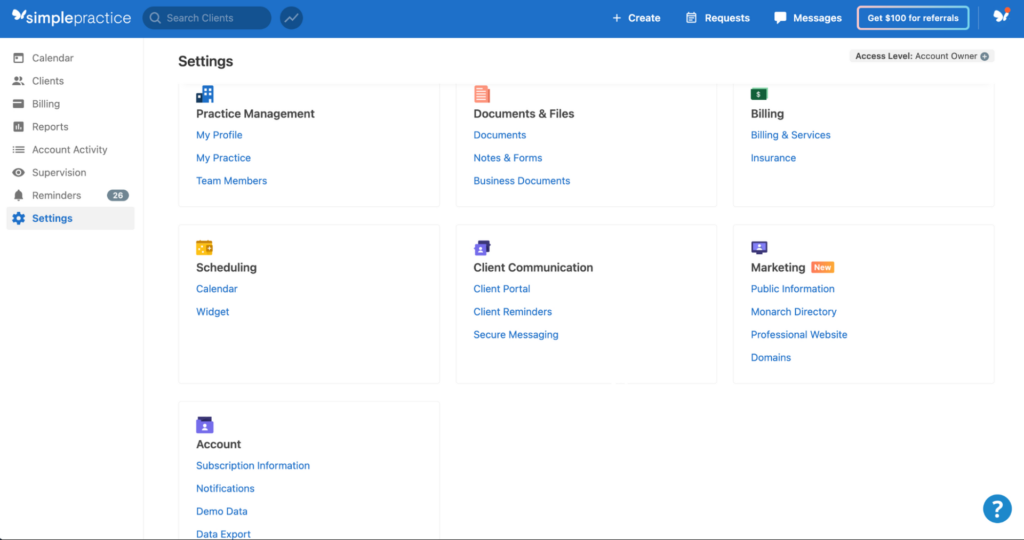
Simple Practice is a cloud-based platform that offers a range of tools and features for mental health practitioners, including appointment scheduling, billing, invoicing, and progress notes.
- TherapyNotes
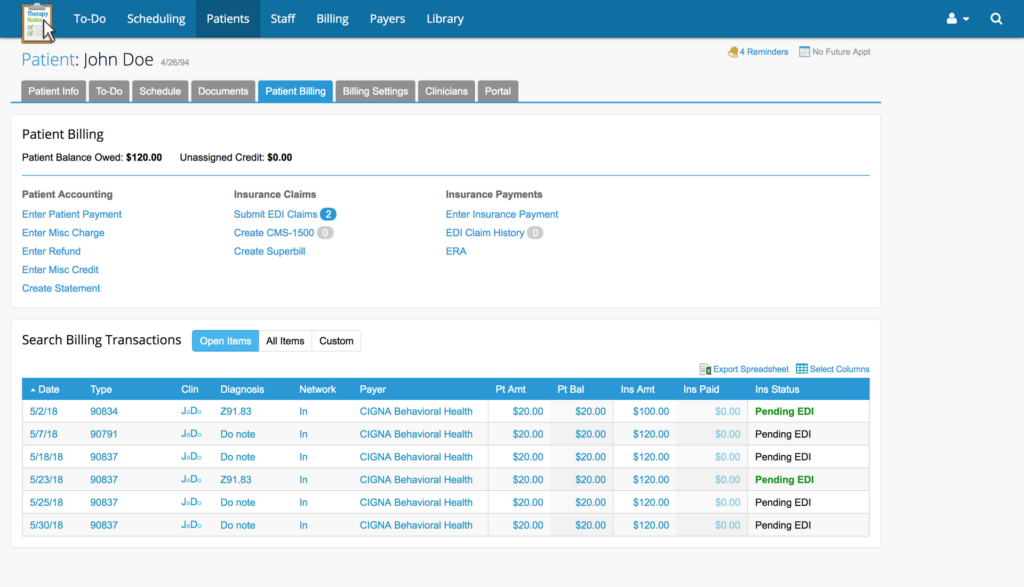
TherapyNotes is a practice management platform that offers a range of features, including appointment scheduling, progress notes, and secure communication with clients.
- TheraNest
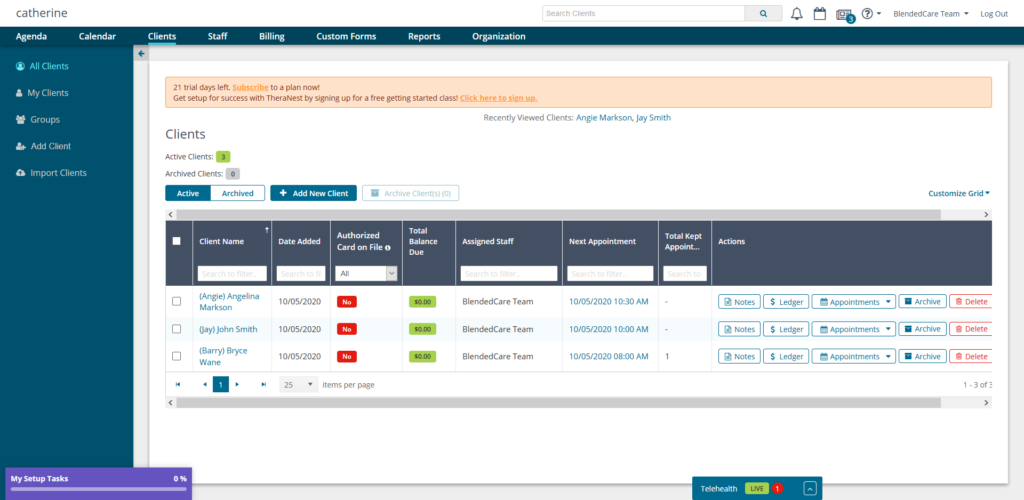
TheraNest is a comprehensive practice management platform that also includes features such as appointment scheduling, progress notes, and secure messaging.
Benefits of Practice Management Software for Mental Health Practitioners
Practice management software can offer a range of benefits for mental health practitioners, including improved efficiency and organization, better communication with clients, and reduced administrative tasks. By streamlining these important tasks, practitioners can focus more on providing the best care for their clients. Additionally, the secure messaging and note-taking features offered by practice management software can help ensure that patient information is protected and secure, which is essential in the field of mental health.
Note-taking Tools (EHR only)
In the realm of electronic health records (EHRs), note-taking tools are an essential component of clinical documentation. We have categorized note-taking tools into three (3) broad types: drop-down list, dictation, and AI note-taking tools.
Drop-down note-taking tools
Drop-down list note-taking tools allow therapists to quickly select pre-defined options from a list rather than typing out detailed notes. This can save time and reduce errors.
Two examples of drop-down list note-taking tools for therapists are iCANotes and NoteDesigns.
- ICANotes
iCANotes is a cloud-based EHR software designed specifically for behavioral health professionals. It offers a range of features including customizable templates, automated note-taking, and e-prescribing.

- NoteDesigner
NoteDesigner is another EHR software that provides therapists with customizable templates and pre-populated dropdown lists to facilitate note-taking.
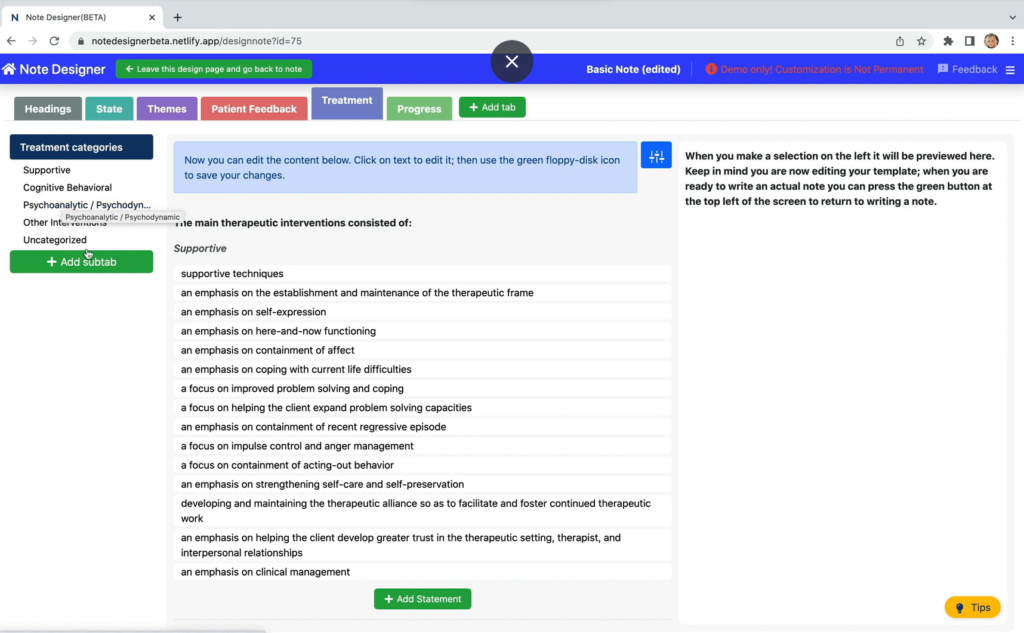
Dictation note-taking tools
Dictation note-taking tools are software programs that allow healthcare professionals to dictate their notes and have them transcribed into text. This type of note-taking tool uses voice recognition technology to convert spoken words into written text. Medical transcription companies such as Nuance offer dictation tools for healthcare professionals to record their notes using a microphone, which is then transcribed into text and inserted into the EHR system.
- Nuance
Nuance provides healthcare professionals with voice recognition technology that is specifically designed for medical transcription. However, while some therapists use dictation software, it is not always tailored specifically for mental health professionals.
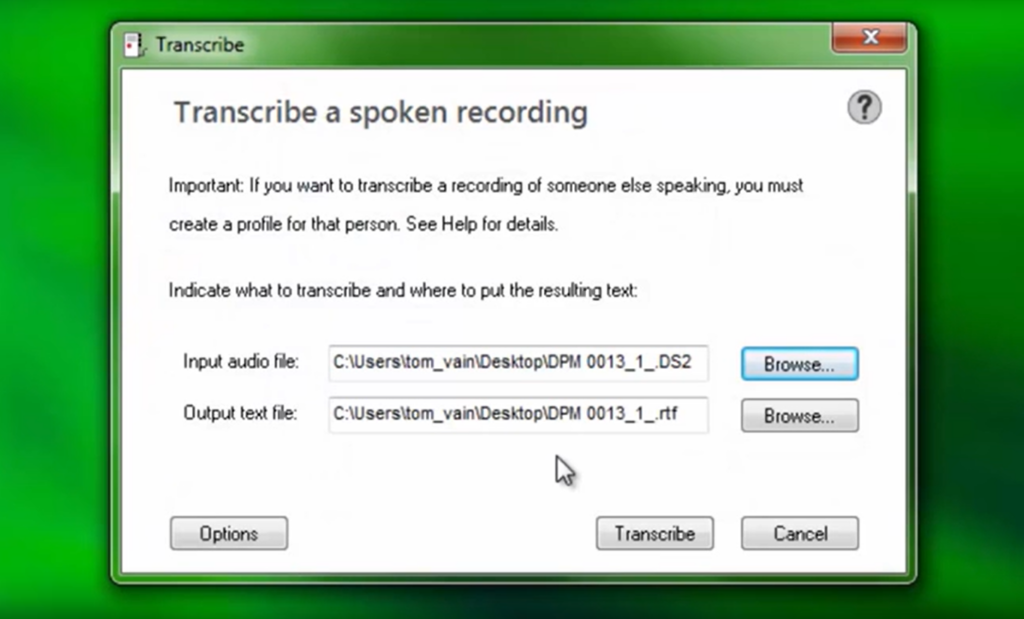
AI note-taking tools
The newest generation of note-taking tools for therapists involves the use of artificial intelligence (AI). These tools use machine learning algorithms to automatically generate notes based on the therapist’s interactions with the patient. One of the leading AI note-taking tools for therapists is Mentalyc.
Mentalyc is a platform that uses natural language processing and machine learning to generate transcriptions and progress notes from audio-recorded therapy sessions. The app can also provide therapists with insights into a patient’s mental health based on their speech patterns and behaviors.

HIPAA Compliance
Definition of HIPAA
The Health Insurance Portability and Accountability Act (HIPAA) is a federal law that sets standards for protecting sensitive patient information. It establishes rules for the use, storage, and sharing of personal health information (PHI).
Importance of HIPAA Compliance for Mental Health Practitioners
As mental health practitioners, it is crucial to ensure that all tools and apps used in the practice are HIPAA-compliant in order to protect clients’ privacy and comply with the law. Failure to comply with HIPAA regulations can result in serious consequences, including hefty fines and damage to a practitioner’s reputation. Mental health practitioners must be diligent in verifying that any tools they use are compliant with HIPAA regulations and take appropriate measures to ensure the security and privacy of client information.
Mentalyc: A Standout Note-taking Tool
Overview of Mentalyc
Mentalyc is an AI note-taking tool that is designed specifically for mental health practitioners. This tool allows therapists to take organized and structured therapy notes, which can be useful for tracking progress and identifying patterns.
Benefits of Mentalyc for Mental Health Practitioners
- Safe and HIPAA-compliant: Mentalyc is a HIPAA-compliant tool, ensuring that sensitive patient information is protected and in compliance with the law.
- Time-saving: Mentalyc can save mental health practitioners a significant amount of time compared to traditional note-taking. With Mentalyc, creating progress notes can take as little as 3 minutes, compared to the 20 minutes per note that traditional note-taking can require.
- Efficient note-taking: Mentalyc uses AI technology to extract important information from therapy session recordings and create high-quality progress notes. This allows mental health practitioners to focus on their clients during sessions and on themselves outside of sessions.
Check out Mentalyc’s features or try out a free trial!
Comparison with Traditional Note-taking
- Time-saving: As mentioned above, Mentalyc can save mental health practitioners a significant amount of time compared to traditional note-taking. Mentalyc uses session audio recording to transcribe and then prepare progress notes in no time.
- Efficient note-taking: With Mentalyc, mental health practitioners can create high-quality progress notes much more quickly and efficiently compared to traditional note-taking.
- Improved accuracy: By using AI technology to extract important information from therapy session recordings, Mentalyc can help ensure that progress notes are accurate and complete.
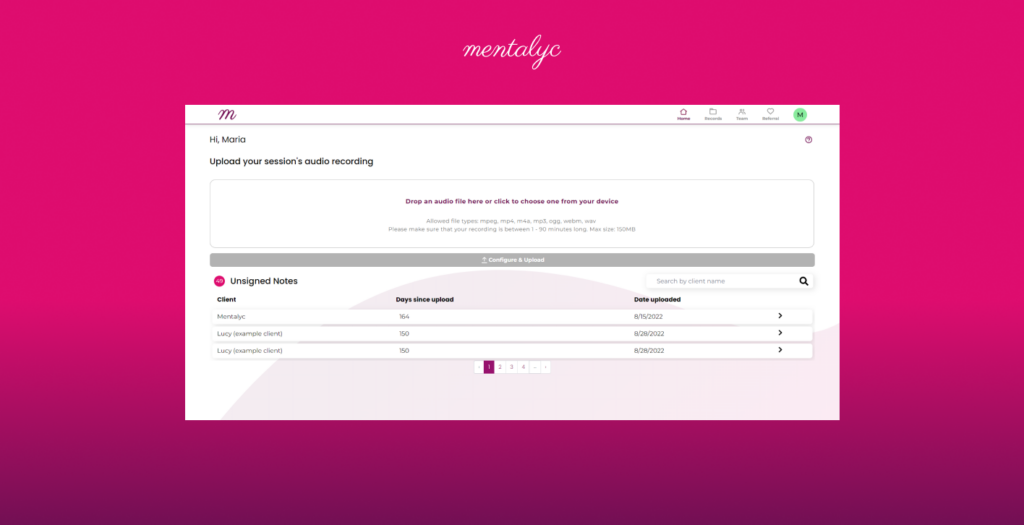
AI in Therapy
AI in therapy refers to the use of artificial intelligence in the field of mental health. This includes technologies that use machine learning algorithms to analyze language patterns, provide personalized recommendations for treatment, and streamline other aspects of mental health practice.
Applications of AI in Mental Health Practice
AI can be applied in many ways within the mental health field. For example, AI-powered tools can analyze language patterns in therapy sessions, helping therapists identify and understand common patterns and themes that emerge during treatment. Additionally, AI can be used to provide personalized recommendations for treatment, such as specific exercises or techniques that may be more effective for a particular client.
Importance of Embracing New Technologies
As AI continues to develop and improve, it is likely to play an increasingly important role in the field of mental health. Mental health practitioners who embrace new technologies, such as Mentalyc (AI-based), can become better equipped to deliver the best care for their clients. By utilizing AI tools to streamline certain aspects of their practice, practitioners can free up more time and energy to fully focus on their clients during sessions and on self-care outside of work. Embracing new technologies can also help mental health practitioners stay ahead of the curve in an ever-evolving field.
Conclusion
Summary of Key Points
In this article, we explored the various tools, apps, and EHRs available to mental health practitioners. We discussed telehealth video tools, practice management software, and note-taking tools such as Mentalyc, HIPAA compliance, and AI in therapy.
Final Thoughts and Recommendations for Mental Health Practitioners
As a mental health practitioner, staying organized and efficient is essential to providing the best care for your clients. The tools and apps mentioned in this article can help you streamline your practice and provide a more effective and efficient service to your clients. However, it is important to remember that all tools must be HIPAA-compliant to ensure the privacy and safety of your client’s sensitive information. As technology continues to advance, it is also worth considering how you can embrace new technologies and use them to improve your practice.


